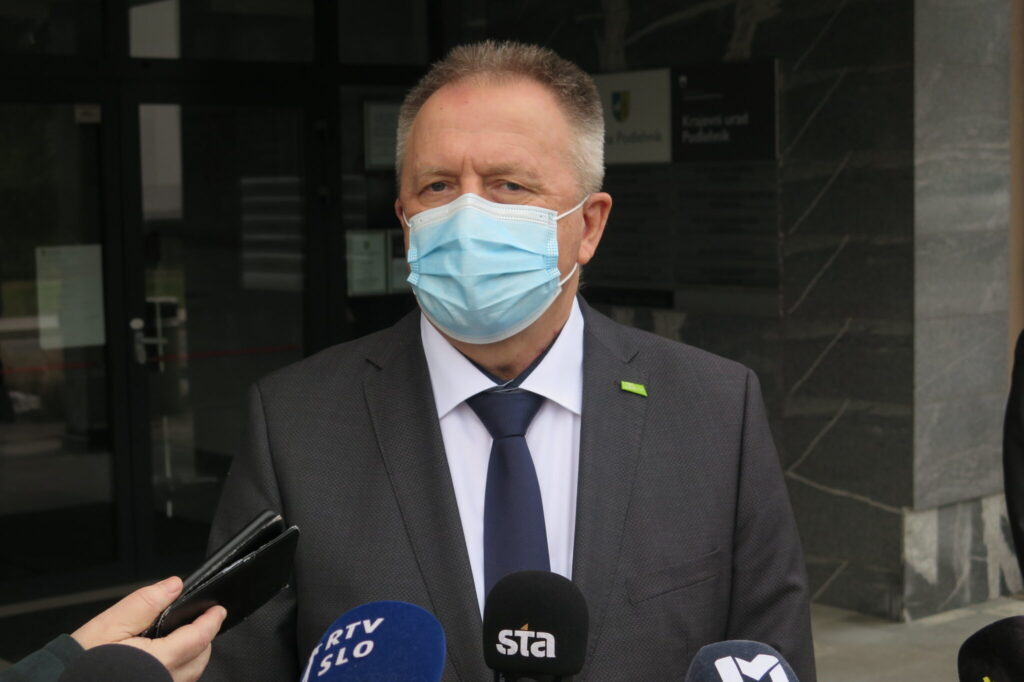On Tuesday, the Minister of the Economy and Technological Development was questioned before the parliamentary Commission of Inquiry for investigating abuses in the case of Franc Kangler and others. Počivalšek shared his opinion on the work of the police and the intelligence services and was mainly critical of the government of Marjan Šarec. At the time when Šarec’s government was still in office, he stopped receiving reports from the intelligence services, which he was able to obtain as a Minister. However, he was most critical of the fact that control was being exercised over himself. On his way to work, he noticed a number of network malfunctions and also discovered there were several insights made into his data, even when he was not on the road at all. “I am not the driver, and I did not have the chance to commit a traffic offence,” he made it clear why there was no real reason for the police inspections of his data to happen.
The parliamentary Commission of Inquiry for investigating abuses in the case of Franc Kangler and others met in the National Assembly on Monday, where the hearing of Minister Zdravko Počivalšek was held, regarding the illegal access to personal records. Počivalšek believes that the intelligence services and the police were being abused for political purposes.
“During the time of Marjan Šarec’s government, I realised that as a Minister who has access and is entitled to data on the economic-security intelligence, I was suddenly no longer able to obtain the said data,” he said. As he went on to explain, he normally received one to three notices per week. However, after Šarec’s government took office, a “drought” followed, as he stopped receiving any economic security-intelligence notifications for a few months, which had previously regularly been sent to him by the Slovene Intelligence and Security Agency, based on which he was able to make certain moves and decisions as a Minister.
Given that he had not witnessed such a situation even during the time of Cerar’s government, he suspected that in this case, the agencies are being abused. And since his drive to work takes at least an hour and fifteen minutes every day, he uses e-mail during his commute, and he noticed some disturbances. “In short, I think that I was monitored several times and that those issues that I do not know how to explain should be looked at,” he said.
Since he has a driver, he did not even have a chance to commit a traffic offence
Further, Počivalšek pointed out that there was an abnormally large number of insights into his data and a lot of interest in his story during all of this time, given that he himself was not even driving at the time. “I am not the driver, and I did not have the chance to commit a traffic offence,” he made it clear, adding that there was no need for police insights into his data during this time. According to the chairman of the commission, Dejan Kaloh, it is very strange that in the case of Počivalšek, they even checked the data on traffic rules and regulations, even though Počivalšek is under protection and has his own driver. “We will check that,” Kaloh said. Further, he pointed out, just like Gorenak, that the police are politicised within the framework of the left-wing prominence, and insights most often occur when the governments change.
Kaloh then further emphasised that Počivalšek’s house search was also politicised in the media and politically, and Počivalšek himself was not surprised by the house searches, as the house search was allegedly a result of all of the previous political pressures and manoeuvres. According to unofficial data, these house searches were proposed by the National Bureau of Investigation and were allegedly based on the findings from the TV show Tarča (Target), as well as claims of Ivan Gale and doctor Rihard Knafelj. Judge Mojca Kocjančič, who ordered this investigation, is the former wife of the former Minister of Justice and LDS official Aleš Zalar, while two years ago, Knafelj even helped write the programme for the LMŠ party. Počivalšek emphasised that despite everything, the detectives respected his rights and were very correct. “However, the head of the investigation was behaving violently /…/ he wanted us to get involved in a conflict, which would allow him to do much more than just what he was doing,” he explained.
Sara Rančigaj


